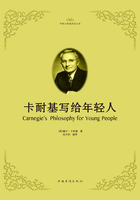Whenever I am staying at a hotel somewhere, or sitting in a cafe watching the world go by, I take some knitting or needlework. The thing is, it makes you invisible, especially if you are a rather overweight woman like me. Paradoxically the extra size makes you even more invisible. Not literally, physically invisible, of course, but socially invisible, which is worse, because it involves a deliberate choice by passers by. Even if it is only for a split second, on some level they decide not to see you. They decide you are not worth seeing.
When my daughter Eva was doing the Norman Conquests in history at school, her teacher spent quite a long time discussing the Bayeux tapestry as a valuable historical document, and how long it might have taken how many women to make this priceless artifact. I suppose the Bayeux tapestry must have been made by many anonymous women like me who have since been absorbed into the backdrop of history, as if they had sewn themselves into their own work and their names had been lost. If they ever had any to lose, that is. It was an art form that went with the times. Authorship was not an issue: it was the work that mattered. They say that a good idea doesn't care who has it, but now the sharpness of the needle seems to be more important than the picture that is being sewn. I remember reading somewhere that we begin life without a name, make a name for ourselves and then grow to the point where we give it up voluntarily in return for just being. The Bayeux tapestry is a surprisingly subversive document, as recent research has revealed. This does not surprise me at all.
I am a tapestry woman. I have a talent for being seen but not being noticed. For me, the business of not being seen was very much an advantage. That was how I got involved in my work in the first place. They told me I was a good watcher with a gift for being overlooked. The most that people would remember was that "some nondescript woman" had been in the lobby knitting, but no one could ever describe me or say when I had arrived or what time I had left. If anyone had bothered to look at the knitting, never mind me, they would have immediately spotted that my pure wool yarns were of a quality that was unobtainable in Czechoslovakia at that time. It was such a giveaway, but no one ever noticed. People don't believe what they see: they see what they believe. And if they believe that people who knit are by definition utterly harmless, then they won't even bother to notice you, even if you have a Beretta hidden among your four ply. Actually I used to carry a Walther PPK, but it was a touch on the heavy side. That was long before the days of metal detectors at airports, of course. And anyway, I used to travel overland.
I wouldn't exactly describe tapestry as my passion. Passions are somehow so personal, so egotistical, whereas the whole point with tapestry is that it absorbs you quietly, anonymously, but completely, so that you forget yourself. This probably goes a long way towards explaining why it has gone out of fashion in the last few decades. In our individualistic times, it has become a despised form. So it is not exactly a passion then, more a way of seeing the world. When I look back over the events of my life, even momentous ones like the birth of my daughter Eva, I remember them in terms of which tapestry I was working on at the time. Or even which one I was not working on. That is another thing about tapestry. When Eva was born I had been sewing a footstool cover with a floral motif on a blue grey background, but it had been put away in a drawer for about four months while I knitted some baby clothes. After she was born, I took it out of the drawer again and finished it in the evenings after I had bathed her and before her last feed of the night. It was summer, so the light was good, and I would sit up in bed in the quiet, stitching the slanting stitches and watching her little sleeping body rise and fall in her cradle.
There is something about the rhythmical repetition of the stitching. It's relaxing and soothing. And even if you can only work for a few minutes at a time, you can put your work down and see what you have done. There is a leaf where there wasn't one before, or a petal, or a candle flame. It's an antidote to all the rushing around we do all day, before collapsing in a heap and not even being able to say what we have accomplished.
So this ability to take a piece of work up and put it down gave me a different feeling for time. I no longer needed to hurry or work to a schedule. Tapestry didn't go away: it just waited patiently, sometimes even for years. Once I had a large, still life tapestry canvas, for example, that I had made a start on before realizing that it needed a proper frame, because it was too big to work on in my hands. It lay in a drawer for years before I found a second hand tapestry frame to attach it to. Every time I took it out to work on it, I would think about the intervening events in my life, such as moving house, changing my job, this or that colleague being fired, and it suddenly seemed to me that none of that mattered any more. It was as if the still backdrop of my life, the things I took for granted, had now moved into central focus, while all the "big" events seemed to have become almost incidental. It was the little things, the fine stitching, that now made the big picture: the time taken to brew a really good cup of tea instead of quickly dunking a tea bag, the walks with the dog, the chats with my neighbours about nothing in particular. I came to understand these things as the real fabric of my life. This shift to the fine stitching created a sense of space inside myself. There was a part of me that no one could touch, that belonged only to me and yet which was not "me" at all, but rather something infinitely silent that had been there before me and would still be there after me. The needle pulled the yarn up through the canvas, the needle pulled the yarn back down through the canvas. The pattern was already there: all I had to do was follow it. My "self" did not have to decide what to do, was not clouded or oppressed with choices that did not need to be made. Freed from myself, I could just watch myself doing what needed to be done.
I do worry about Eva. She gets so wound up about that school and all the stupid power struggles that go on there. I don't think she believes me when I tell her that real trouble frees you from all that. Once you've tasted the real thing, you lose all taste for the synthetic.
I'd completely forgotten about the Walther PPK hidden under the old darned sheets in the dresser upstairs. It was my grandson Rusty who found it. He had come round with his friend Fluke one Saturday afternoon. They'd promised to paint the spare bedroom for me. The two of them could easily get two coats on in an afternoon, it's only a small room, and I'd told them I would give them a few quid for their trouble and buy them a Chinese takeaway, and we could watch a couple of DVDs from Blockbuster's. Rusty came downstairs into the living room, his eyes as wide as train tunnels, and walked in holding the gun between his finger and thumb. Fluke gawped at him, and then at me. It really was quite embarrassing. I made Rusty and Fluke promise me not to worry Eva about it.
"Cool! You've got a Rambo granny!" Fluke had volunteered, helpfully, clearly impressed. The gulf between fantasy and reality in young people these days really is alarmingly wide. "My name is Bond. Granny Bond!" Rusty had boomed dramatically at Fluke, who laughed.
"Have you got any ammo for this thing, granny?" Rusty had eventually asked, trying to sound nonchalant. "Now don't be silly dear", I had answered, hastily running in my mind through the places in the house where I might still have some stashed away inadvertently.
"What did you use it for granny?" Rusty had asked, inevitably. At least he instinctively used the past tense, thereby crediting me with enough law abiding traits not to run amok with a Walther PPK at the local supermarket. Clearly, I owed them some sort of explanation. It worked out quite well, actually: I told them, in strictest confidence of course, what I had got up to for a living in Czechoslovakia in the sixties, and in return I was presented with a rather strange looking mobile phone by Fluke, who promised me, with mysterious gravity, that I would never ever need to buy any credit for it as long as I lived. So, all in all, not a bad deal really. After all, those top up cards don't half make a hole in your pension.
They were quite disappointed when I told them that I had never actually had to use the gun, and even a couple of trips risked not carrying one at all. I've never liked the things and was always very grateful to get away with not having to use it. I was quite good at shooting practice in training, but shooting at a live target would never have been for me.
After I married in 1946 and left Czechoslovakia to come and live in England I was approached to travel there under the legitimate guise of the publishing company I worked for in London. Most of the time I was just a courier. Although I was born in Prague I knew the forests in the south near the border with Austria very well. One of my grannies was from southern Bohemia. I would travel to Prague and then be contacted there. The firm in London published coeditions in two or three language versions with a partner publisher in Prague, mostly coffee table books on hobbies, fishing, cat fancy and the like, although they did a nice series of children's fairy stories once. Sometimes I worked at that end of the chain, as a native Czech speaker, and sometimes on the Austrian side. Because of my Austrian grandfather from Vienna I can speak high German and Viennese too.
My daughter Eva never knew about this. It was a secret. All she knew was that I would sometimes have to go up to London for a few days at a time. There were absences even when she was quite small. It all started quite soon after she was born. I was never happy about being away when she was so little, but once I was involved it sort of took over. It wasn't easy, keeping the truth from her. Like most children she could sense that something was being held back and, inevitably, it came between us, like a silent barrier. It was a strange feeling, telling the story to Rusty. It seemed so easy, because those issues were not in the way with him. He was not damaged by my past. He thinks of it as glamorous and exciting. But it felt good to share it with someone who is my own flesh and blood.
It was one of those moments, a release into the fullness of time, when one feels lit from above, as if from that vantage point all of life were just a series of such illuminated points, making a path that could only be seen from above, so that all the intervening time between those points just folds away, leaving only the meaning of the way itself, like the essence of a blueprint that one brought into life from that other place and had only to lay down in time.
"What are you smiling at Gran?" Rusty asked with a chuckle, seeing me staring into space.
"Oh!" I said, startled, returning to the moment. "Actually, I was thinking about a ring, a green ring."
"Oh," said Rusty, laughing out loud. "Well that explains everything!"















